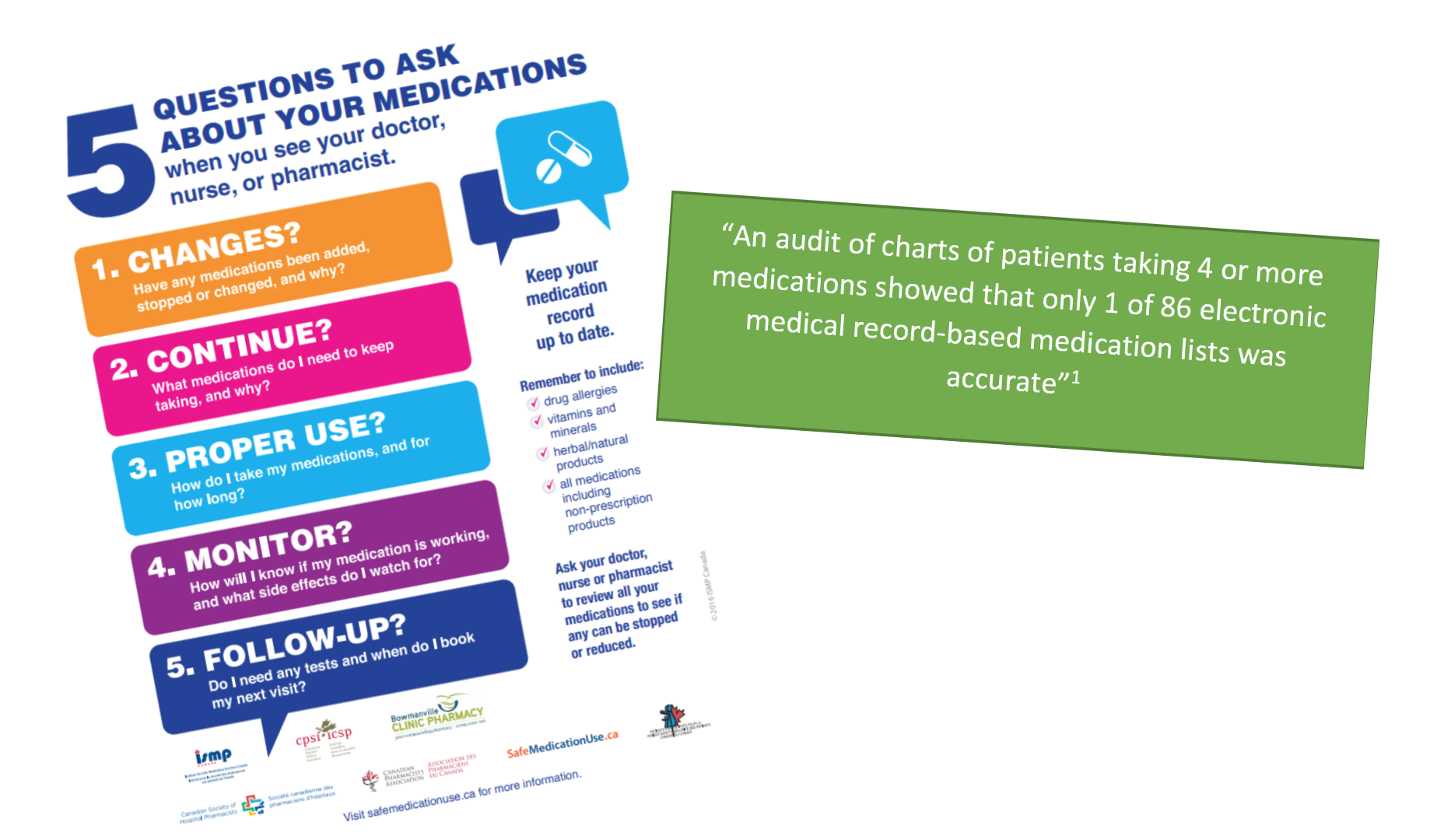You may have heard the phrase “transitions in care”. This addresses the times you are going from one health provider to another. This could be for a one-time visit or a longer period. Examples are when you go see a specialist or are hospitalized.
All of these transitions involve communicating your medical information including your medications.
When transferring medical information, there are plenty of chances for mistakes.
Specialist Care
For example, when you see a specialist, your family doctor usually sends a list of your medications from the electronic medical record (EMR). There is a chance, if the medication list is missing something or has errors, the specialist could make a decision based on wrong information. (see green box at the top).
When the specialist confirms with you that the medication list on the file is correct, this is a safety check. The second safety check is you making sure you know which changes are to be made with your medications. The third safety check is done by your pharmacist. They will identify duplicate therapies, drug interactions or dosages that don’t match up with the new prescription. The pharmacist will act on your behalf and contact the specialist to address any medication concerns identified. This is one great reason to only use one pharmacy. Having your medication information in one place can prevent errors and harm.
Hospital Care
Transitions of care in hospital happen you are checked into the hospital, transfer to different units/wards and at discharge home. A strategy to prevent medication errors is called “medication reconciliation”. This process makes sure differences between lists are justified, clarified and modified as required.
When you leave the hospital, it is important for you/family to be involved in the discussion to make sure the medication instructions are complete and understood. Both you and your pharmacist need to know what is the:
- same
- changed
- stopped
- new
Try using the tool, 5 Questions to Ask About Your Medications (see picture at the top) when you or a family member is being discharged from hospital. Getting answers from the hospital about: #1 . changes and #2 what to continue is essential to obtaining and understanding your new medication regimen. Your pharmacist can educate you on questions #3 proper use and #4 monitor. Then, booking an appointment to see your family doctor within 7 days of discharge is essential to establishing #5 follow-up plan with your medications.
The health care system and medication regimens are complex. Have a list of your current medications available always. Be a team player so you understand and use your medications to get best outcomes. Speak up and always get the answers you need when you have questions or concerns.

